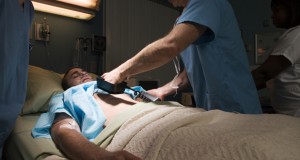Nurses may realise early in the piece that patients are ready to move from life-prolonging treatment to palliative care but are unable to make that decision for them, a recent study has highlighted. University of Queensland School of Social Science associate ...
More »Go8 dominate ARC grants again
Go8 universities were once again the big winners of Australian Research Council grants. Collectively, they picked up almost 70 per cent of the $354 million in allocated federal funds from the latest round. Leading the way was UNSW, which received $45.3 million that will fund ...
More »Trial and error
Collective vigilance is required to safeguard the reliability of published medical research. By Chris Del Mar Our current view about the publishing of scientific results is that it runs along narrow rails. It goes something like this: A study is ...
More »Alzheimer’s blood test promises early detection
A blood test for the diagnosis of early-onset Alzheimer’s disease has been developed. The test, made by University of Melbourne researchers, has the potential to improve detections of early-onset Alzheimer’s disease to 91 per cent accuracy. Brain imaging can detect ...
More »Chief scientiest launches expansive HASS report
A report on humanities and social sciences (HASS) in Australian educational institutions, released yesterday, has provided arguably the clearest snapshot yet of challenges facing the sector’s sustainability. Launched at the National Press Club in Canberra yesterday by Australian chief scientist ...
More »Just a half-hour of exercise can get the brain firing
As little as 30 minutes of aerobic exercise could be enough to spark positive changes in the brain, leading to improved memory and co-ordination of motor skills, researchers said. A study carried out at the University of Adelaide’s Robinson Research Institute ...
More »Australian-born parents more likely to give booze
Research has found that Australian-born parents are more likely to supply their teenage children with alcohol than immigrant parents, particularly when bottle shops and other licensed premises are common in their local area. A survey of more than 10,000 Victorian students ...
More »Advance care directives still rare
New data indicating that almost 9 in 10 Australians have no determined advance care directives (AD) has led to calls for regulatory changes aimed at increasing uptake. A national phone-based survey, conducted by researchers at the Queensland University of Technology, found ...
More »Study will get workers moving — for their health
Are you standing up while reading this? You should be. The negative health effects office workers suffer as a result of prolonged sitting are the subject of new research being undertaken by the University of Queensland’s school of human movement. As ...
More »Students’ electric car burns up speed record
A quarter-century-old speed record for electric cars has been smashed by a group of UNSW engineering students with a sleek-looking car dubbed ‘eVe’. The record, measured as an average speed of an electric car travelling a distance of 500km, was ...
More » Campus Review The latest in higher education news
Campus Review The latest in higher education news









